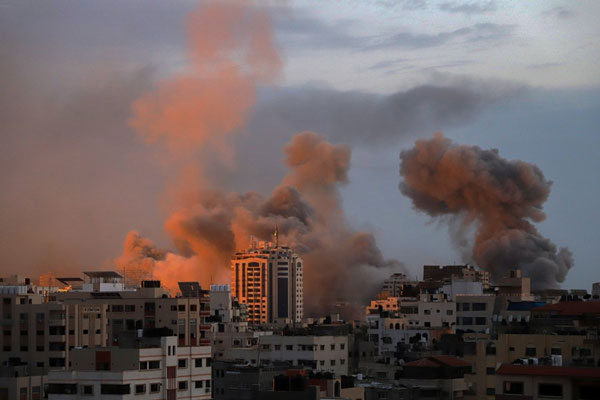
Both Arabs and Israelis must think carefully about what their policies and actions are likely to accomplish
COMMENT | MUHANNAD ALAZZEH | The October 7 Hamas attack and Israel’s remorseless military response have once again revived a seemingly unending cycle of violence in the Middle East. As matters stand, there are no serious efforts underway to break the cycle, and the prospect of finally resolving the Israeli-Palestinian conflict seems more distant than ever. All those who desire peace must speak truth to both Israelis and militant Islamic fundamentalists.
Growing up, most of us were taught that knowing and carefully considering one’s own past is a mark of character. Today, however, we are dealing with parties that refuse to account properly for past experiences, or to plan for their futures.
Hamas’s operation on October 7 was a more advanced version of its previous attacks in 2008, 2014, and 2021. Its professed goal was to respond to the provocative occupation practices around Al-Aqsa Mosque in East Jerusalem, and to liberate Palestinian prisoners. But these attacks have never changed anything on the ground in Gaza; rather, they have consistently caused more deaths on both sides – though usually five times as many Palestinians as Israelis. Then there is the inevitable destruction of infrastructure, the predictable tightening of the blockade, and the continuing crackdown on Palestinians (such as those being arrested at Al-Aqsa in growing numbers).
Similarly, in seeking to punish Hamas militarily for the 1,400 Israelis killed on October 7, Israel has not paused to examine its own record. Previous wars in Gaza did not achieve their primary objective of taming Hamas, because Israel’s approach has been to deal with the symptoms instead of the root causes.
Since its inception, Israel has fought many bloody wars in the name of preserving its security, which in turn has come at the cost of Palestinians’ lives, rights, and future prospects. Most recently, Prime Minister Binyamin Netanyahu’s far-right government (now pushed aside in favour of an emergency national-unity government) had placed religious zealots in key cabinet positions, where they ratcheted up tensions with Palestinians over Al-Aqsa and throughout the occupied West Bank.
Israelis consistently make the mistake of believing that the Palestinians will submissively accept the status quo despite leading lives under harsh conditions with little hope. Yet the history of conflicts and occupations in Algeria, Morocco, Tunisia, Syria, and Egypt makes clear that such a mindset is doomed to bring failure. Oppressed people may go through periods of seemingly deep apathy, but their desire for freedom remains. They will always awaken from their quiescence at some point.
In this latest war, Israel’s goals seem to be to avenge those who were killed by Hamas, to restore the Israel Defense Forces’ dented deterrent power, and to eliminate Hamas from Gaza. But it has not explained how it will accomplish the latter goal, nor how it will deal with the aftermath.
Every time Hamas drags Gaza and its people into a bloody war with Israel, emotions inevitably run high across the Arab world. Images of Gaza’s destruction incite anger not just on the Arab street, but also among typically cooler heads. While disappointing, it is not surprising to see support for Hamas and its usurpation of the Palestinian cause spread to some of the most educated and enlightened members of the Arab elite. One such figure recently chastised me for criticising Hamas, arguing that it is not a terrorist organisation but a resistance movement, and that the slain Israelis were not civilians but settlers who deserved it.
Such reactions demonstrate how waves of violence and hatred consume everyone in their path. Even intellectuals can succumb to emotions and rage, much of it fueled by social media and propaganda.
If Israel is unable to eliminate Hamas, or even to undermine its military power and political authority, it will have accomplished little. The unprecedented damage being inflicted on Gaza will take decades to overcome. Likewise, all Hamas will have done is stage a narcissistic display of force, one that the innocent people of Gaza must pay for with their blood, their homes, and their future. Hamas’s disdain for innocent civilians will reach its peak whenever the war ends. Once again, its supporters will celebrate “victory” while standing on the rubble of demolished homes and the corpses of innocent Gazans.
Both Arabs and Israelis must think carefully about what their policies and actions are likely to accomplish. Remembering past experience is the only way to return to a path that offers at least some hope for the future on both sides of the conflict.
*****

Muhannad Alazzeh, a former member of the Jordanian Senate, is an international human-rights expert.
Copyright: Project Syndicate, 2023.
 The Independent Uganda: You get the Truth we Pay the Price
The Independent Uganda: You get the Truth we Pay the Price


